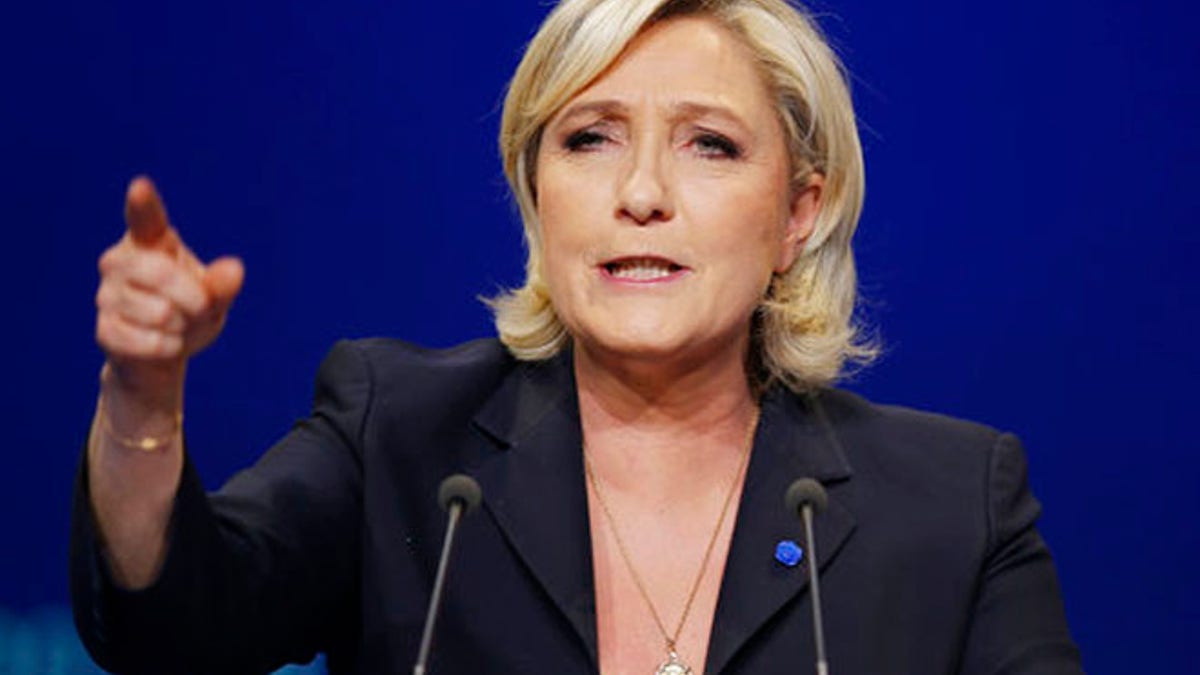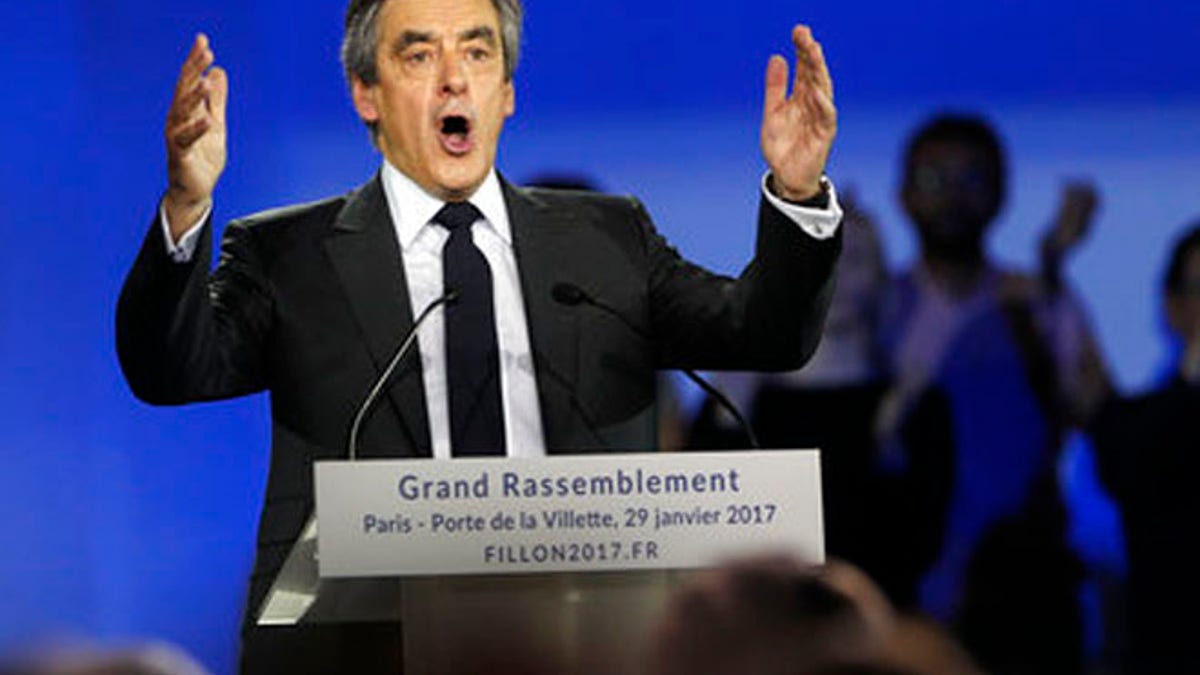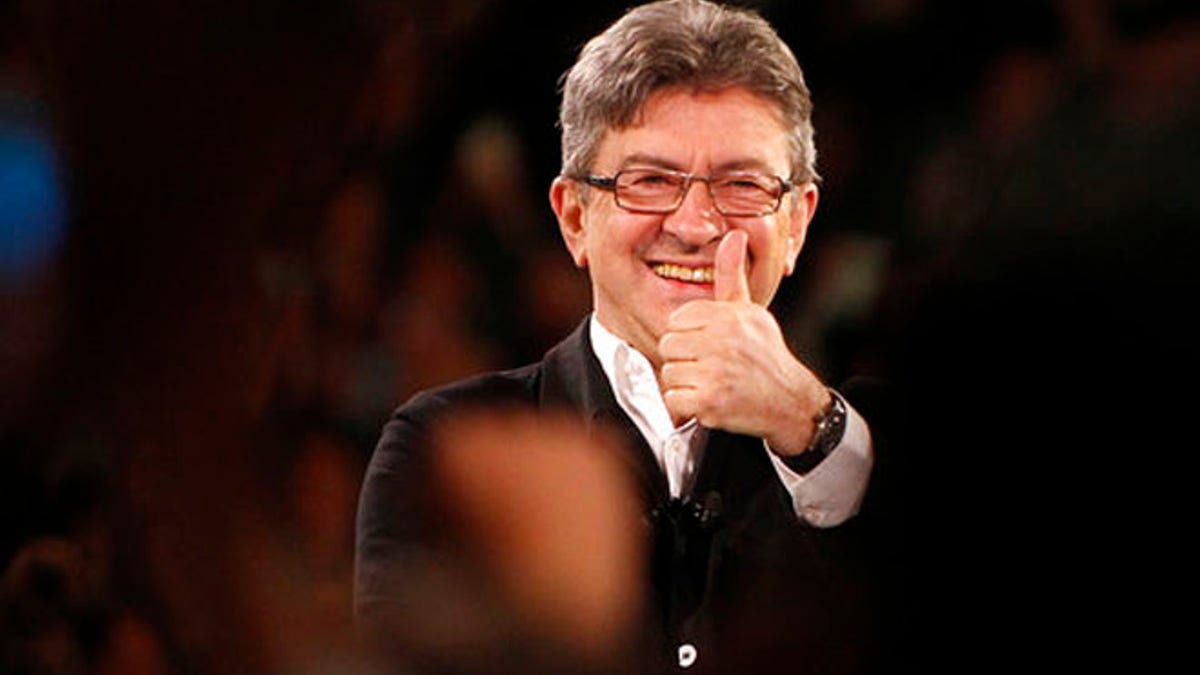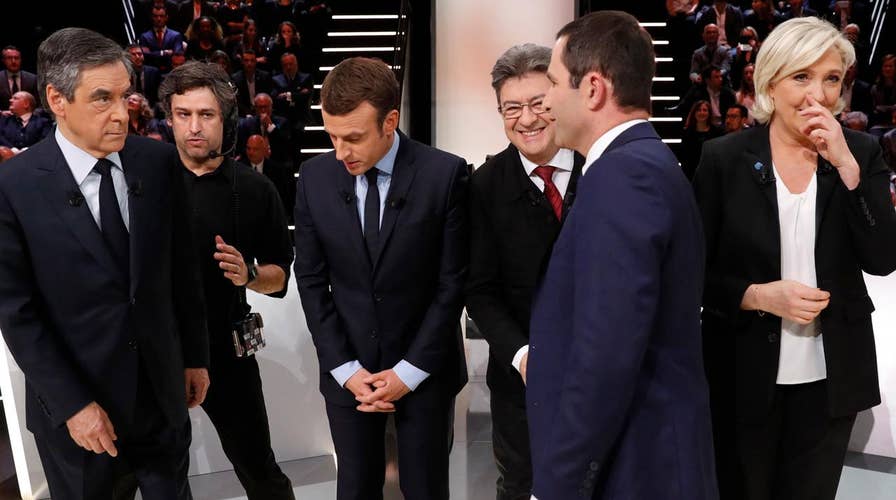Judging from his Twitter feed, President Trump is keeping a close eye on Sunday’s French presidential election.
With polls showing the top four, radically different candidates neck-and-neck, and the outcome central to the European Union and to NATO, it is little surprise Trump is paying attention. The election is possibly the most important of 2017.
In a Friday morning tweet, Trump noted the terror attack in Paris on Thursday, and said it will have a “big effect” on Sunday’s election.
What is happening this weekend?
The French will go to the polls on Sunday to vote in the first round of their presidential election and will choose from 11 candidates. The top two candidates from that vote will go into a run-off in May. Whoever wins that vote will be the new French President and will replace current Socialist President François Hollande in the Élysée Palace.
Whom should I be keeping an eye on?
While there are 11 candidates, there are four major candidates who are running almost neck-and-neck, and have a chance of getting through to the next round. They are:
Emmanuel Macron (En Marche!)
If there is a “French Obama,” Macron is it. Posing as a pragmatic, independent centrist, the dashing 39-year-old has captured the hearts of many French citizens looking for a “change” candidate without lurching to the extreme left or right. In many ways, his style models former UK Prime Minister Tony Blair, who led his Labour Party to power by adopting a so-called “third-way” centrism.
Macron’s background as a former civil servant and investment banker who served in Hollande’s government have led his critics to say he is less of a change candidate as he is a savvy spokesman for globalist elites and the status quo.
But Macron seems not to have been too shaken by these criticisms, and he has gone from a long shot to leading favorite. He has been outspoken in his support for the European Union, and in the past backed Angela Merkel’s unpopular refugee policies, saying she saved Europe’s “dignity.” His economic policies include careful cuts to corporation taxes, reducing labor costs and a public investment spending program.
Macron is currently tipping ahead in the polls by a few points, and was given a possible boost Thursday when he received a phone call from former President Barack Obama, who gave the clearly enamored French candidate some support – which Macron quickly posted onto social media.
Let’s keep defending our progressive values. Thank you for this discussion @BarackObama. pic.twitter.com/8rhNdHkLo8
— Emmanuel Macron (@EmmanuelMacron) April 20, 2017
If there was both a media and pollster's favorite for Sunday, it would be Macron. Should he make it through to Round 2 and be pitted against a more extreme candidate, he has clung close to the center so as to scoop up the votes from the opposite wing and put him over the 50 percent mark.
Marine Le Pen (Front national)
While Macron may be the favorite, Le Pen and her rise to the top has been the story of French politics for over a year. The right-wing populist has moved the once extremist party that bathed in anti-Semitism under her father Jean-Marie Le Pen to “de-toxify” itself of its racist baggage, and embrace more populist policies.
Le Pen has had significant success, and has proved to be a shrewd politician as she moved her party's focus to restricting immigration, opposing Islamism and leaving the European Union. On the economy, she has blasted what she calls “unregulated liberalism” and has called for protectionist policies, as well as a tax on businesses employing workers from abroad.

April 19, 2017: Candidate for the 2017 French presidential election Marine Le Pen speaks during a meeting in Marseille, southern France. (AP)
With her focus on what she calls “economic patriotism,” as well as her strong stances on immigration and Islam, she invites comparisons to President Trump – comparisons she has welcomed. She has praised Trump multiple times and was seen at Trump Tower earlier this year.
While Le Pen’s chances on getting into the second round are strong, as she sits in second place in the polls, her chances in the second round seem significantly weaker. When France’s traditionally left-wing electorate are faced with a candidate identified with the “far-right” versus a possibly more centrist candidate, polling shows her losing comfortably. But France’s political system is so volatile, and with French voters stinging from Thursday's terrorist attack in Paris, it would be foolhardy to write the savvy Le Pen off so soon.
François Fillon (The Republicans)
François Fillon, if you spoke to almost any European commentator in February, was a political dead duck. Once at the top of the polls after winning the main center-right party’s nomination last year, the former prime minister was brought to his knees by a deadly cocktail of allegations of corruption.
Fillon was running a socially conservative campaign with a focus on moral values, free-market economics, fiscal responsibility, as well as a strong stance on Islamism that threatened to eat into Le Pen’s vote (Fillon wrote a book in 2016 on the dangers of “Islamic totalitarianism”). Fillon presented himself as a rejection of the unpopular policies of President Hollande, and it seemed to be working.

Jan. 29, 2017: French Conservative presidential candidate Francois Fillon makes a speech during a campaign meeting in Paris. (AP)
But Fillon's numbers dove when the French newspaper Le Canard Enchaîné revealed that Fillon’s wife Penelope and their two children were paid almost a million euros of taxpayer money, with little evidence they did any work in return. What quickly became known as “Penelopegate” led to a police probe into possible embezzlement and calls from his own party to pull out.
Fillon refused, and has clawed his way back into relevance. Recent polls now put him only a few points behind Macron and Le Pen, suggesting that a dive in the fortunes of either rival could allow Fillon to squeak into the second round. Despite being under investigation, and with a deeply divided party at war behind him, the Catholic Fillon has seen his political fortunes undergo an unlikely resurrection -- and now will be hoping to see an ascension to the Élysée Palace.
Jean-Luc Mélenchon (Unsubmissive France)
Often, Europeans get sick of being compared to American politicians. But in the case of the far-left Jean-Luc Mélenchon, the former-Trotskyist has openly welcomed comparisons to 2016 Democratic presidential hopeful Sen. Bernie Sanders, I-Vt.
It is easy to make comparisons between Mélenchon and Sanders. Both have pushed economic socialism, arguing for higher taxes on the wealthy (Mélenchon has called for tax rates as high as 90 percent,) more spending on public programs, regulation on banks and industry, a priority on environmentalism, as well as fewer military commitments abroad.

April 12, 2017: French left-wing party leader and candidate for the 2017 presidential election, Jean-Luc Melenchon gestures during a meeting in Lille, northern France. (AP)
But on many issues, the firebrand Mélenchon is a few steps beyond Sanders. Mélenchon has praised former Venezuela dictator Hugo Chavez and Cuban dictator Fidel Castro, and has called for the complete withdrawal of France from NATO and the European Union – the latter is a rare moment of parity between him and Le Pen.
Once he was seen as too radical even for the French electorate – which has been a lot cozier with socialism than the American electorate. But the implosion of the French Socialist Party, from which the vastly unpopular President Hollande hails – has given Mélenchon an opening, and he has surprised critics to leapfrog Hollande’s Socialist successor Benoît Hamon (whose numbers have collapsed into the single digits) to jump into the top four.
One poll has him only a point behind Fillon, and six behind Macron. A last minute change in fortunes, or a polling error (a common occurence in 2016) could throw the man who newspaper Le Figaro called “The French Chavez” into the run-off.
What is the most likely outcome on Sunday?
It’s simply too close to call. While polling has Macron and Le Pen ahead, it isn’t by much, and polling errors, turnout, and the fallout from yet another Islamic terror attack on Thursday makes anything possible.
A gambling man looking to put his money on the safest bet would probably throw his weight behind Macron getting into the second round and soundly beating whoever his rival is. But that same gambler would also have put his money on Britain remaining in the European Union and Hillary Clinton being President of the United States.
Some commentators have noted that an unlikely, but not impossible outcome, is a second-round run-off between Le Pen and Mélenchon – giving the French a choice of two extremes. Or it could be a choice between Fillon and Macron – a more traditional center-left vs. center-right battle.
The world will know on Sunday.

